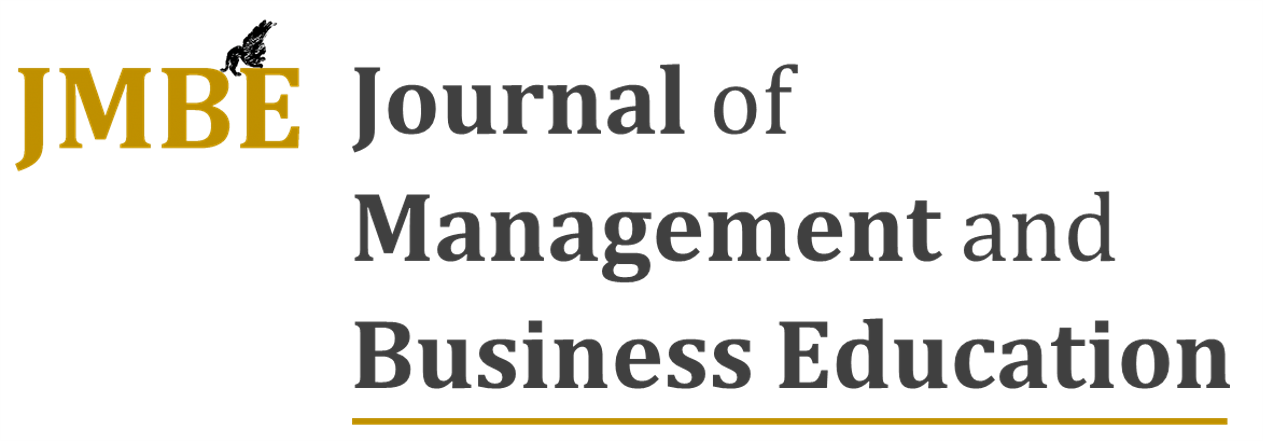Analysis of the effect of the use of multimedia tools
DOI:
https://doi.org/10.35564/jmbe.2018.0015Keywords:
Motivation, digital tools, smartphone, higher education, active learningAbstract
The need to adapt university education to the new teaching-learning processes demanded by students, teachers and educational institutions leads us to think deeply about the subject. In this sense, the Internet and the use of smartphones in the classroom allow to use active and motivational methodologies to the students. This study examines the effect that causes the use of different digital tools in students such as Socrative or Bolsa Virtual and audiovisual elements in two subjects of the Administration and Management degree by comparing them in the academic year 2017/2018. The aim of this paper is fourfold: firstly, to measure and assess the results obtained in terms of improvements in students' knowledge and skills. Secondly, to analyse and determine to what extent the use of digital applications enables us to achieve a higher motivation in the classroom. Thirdly, to ascertain whether there are any differences between the results obtained in each of the tools employed. Finally, analyse if there are differences between the results obtained between the two subjects with different number of students and of different courses.
Downloads
References
Balta, N., Perera-Rodríguez, V. H., y Hervás-Gómez, C. (2018). Using socrative as an online homework platform to increase students' exam scores. Education and Information Technologies, 23(2), 837-850.
https://doi.org/10.1007/s10639-017-9638-6
Cabero Almenara, J. y Gutierrez Castillo, J. J. (2015). La producción de materiales TIC como desarrollo de las competencias del estudiante universitario. Aula de Encuentro, 2(17), 5-32.
Catalán, S. & Martínez, E. (2018). Favorecer el "estado de flow": La clave de los juegos de simulación empresarial. Journal of Management and Business Education, 1(2), 140-159.
https://doi.org/10.35564/jmbe.2018.0011
Cerdán, A. P., Chust, A. P., de Andres Martinez, D., Daviu, E. A., Andrés, J. E., Server, J. V. B., & Llorente, C. V. (2016). Aplicación de herramientas tecnológicas en la evaluación del proceso de enseñanza-aprendizaje: Uso de Smartphones en el aula. Revista Internacional de Aprendizaje y Cibersociedad, 17(1).
https://doi.org/10.37467/gka-revciber.v17.1191
Duncan, D., Hoekstra, A., & Wilcox, B. (2012). Digital devices, distraction, and student performance: Does in-class cell phone use reduce learning. Astronomy Education Review.
https://doi.org/10.3847/AER2012011
Eisele-Dyrli, K. (2011). Mobile goes mainstream. District Administration.
Elias, T. (2011). Universal instructional design principles for mobile learning. The International Review of Research in Open and.
https://doi.org/10.19173/irrodl.v12i2.965
Estelles-Miguel, S.; Peris-Ortiz, M.; Albarracín Guillem, JM.; & Palmer Gato, ME. (2018). Nuevas formas de enseñanza y aprendizaje en dirección de producción y operaciones. Journal of Management and Business Education, 1(1), 69-79
https://doi.org/10.35564/jmbe.2018.0006
Pasin, F. & Giroux, H. (2011). The impact of a simulation game on operations management education. Computers & Education 57, 1240-1254.
https://doi.org/10.1016/j.compedu.2010.12.006
Paz-Albo, J. (2014). The impact of using smartphones as student response systems on prospective teacher educatio training: a case study. El Guiniguada. Revista de investigaciones y experiencias en Ciencias de la Educación, 23, 125-133.
Paz-Albo, J., y Hervás, A. (Julio de 2016). Exit tickets' effect on engagement in college classrooms. En L. Gómez, A. López, e I. Candel (Eds.), EDULEARN16. Proceedings of the 8th international conference on education and new learning technologies (pp. 5915-5918). Barcelona, España: IATED Academy.
Pérez, B. E., & Gallardo, A. L. (2005). Juegos de simulación empresarial como herramienta docente para la adaptación al espacio europeo de educación superior: experiencia en la diplomatura en turismo. Cuadernos de turismo, (16), 85-104.
Whitehead, D. (2008). Thoughts on education and innovation. Childhood Education, 85(2), 105-B.
Downloads
Published
How to Cite
Issue
Section
License
Copyright (c) 2023 Journal of Management and Business Education

This work is licensed under a Creative Commons Attribution-NonCommercial-ShareAlike 4.0 International License.
License terms at: https://creativecommons.org/licenses/by-nc/4.0/legalcode




